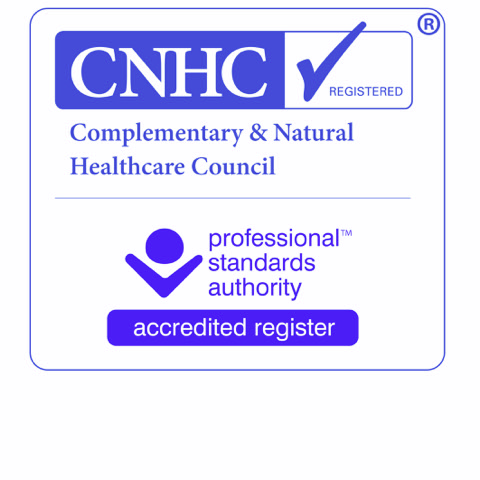Understanding Aromatherapy – Clinical Aromatherapy Diploma
Why is understanding Aromatherapy important – I thought essential oils are all natural as the come from plants so they must be safe are they not?
Essential oils are derived from plants and are distilled or extracted from different parts of the plants, however depending on how the oils are used most of them are safe, however some are not, as the reason the plants produce them is as a toxin to help protect them from predators.
Fun Fact – it will take…….
- 4 – 5lbs of peppermint leaves = 1 x 15ml bottle of Peppermint Essential oil
- 4 – 5lbs of lavender flowers = 1 x 15ml bottle of lavender Essential oil
- 75 lemons = 1 x 15ml bottle of Lemon Essential oil
- 10,000 roses = 1 x 15ml bottle of Rose Essential oil
- 14 oranges = 1 x 15ml bottle of Orange Essential oil
In order to be safe when using essential oils you need to understand the difference between the oils. Each oil has both a common name as well as a latin name. Using Lavender as an example did you know that there are over 45 different species of this plant so by using the latin as well as the common names helps you to differentiate between them. Picking 2 of the lavender family to show how they can be different.
Lavender True (common name)
Lavandula angustifolia (latin name)
Lavandula – is the plant genus / angustifolia – is the plant species
Lavender Spike (common name)
Lavandula latifolia (latin name)
Lavandula – is the plant genus / latifolia – is the plant species
These 2 Lavender oils have different therapeutic properties, safety issues as you can see from the list below.
|
Therapeutic Properties |
Lavender True |
Lavender Spike |
|
Anti-infectious |
✓ |
✓ |
|
Reduce pain |
✓ |
✓ |
|
Calming |
✓ |
|
|
Immune stimulant |
✓ |
|
|
Calms nervous tension |
✓ |
|
|
Soothing |
✓ |
|
|
Balancing |
✓ |
|
|
Decongestant |
|
✓ |
|
Increase circulation to the head |
|
✓ |
|
Ease muscle Spasm |
|
✓ |
|
Revitalizing |
|
✓ |
|
Reduces coughing |
|
✓ |
|
|
|
|
|
Safety |
|
|
|
Gentle no safety issues known |
✓ |
|
|
Generally non toxic/non irritating |
|
✓ |
|
Take care if Pregnant |
|
✓ |
|
Take care if under 10 years old |
|
✓ |
|
Take care if suffer with Asthma |
|
✓ |
As you can see from the above table lavender plants offer different therapeutic properties and safety issues as you would want to be very careful using the Lavender Spike on people who are pregnant, children under 10 years and Asthmatics as the oil could cause a reaction to these people. Also Lavender is well known as the go to oil to help you if you have trouble sleeping, which yes this is true, however again depending on which Lavender species you use can make a difference. Lavender Spike is energising for the mind and body, so would make you alert and not calming to aid sleep, where as Lavender True is calming and the oil for sleep, but this should only be used in small quantiles such as 1 or 2 drop on a tissue next to the bed or in a room diffuser, if you start to use more drops it can actually have the opposite affect and give you insomnia.
Another safety consideration for essential oils you need to be aware of are Chemotypes (seen as ct. after the species in the latin name). This means that the plants are the same genus and species, but due to the different environments they are grown in can change the chemical make up of the oil. The chemotype highlight the predominant chemical component in the oil. An example is that of the herb Thyme (common name). Thymus vulgaris (latin name). There are 2 main chemotypes to look out for and they are ct, thymol and ct. linalool.
Thymus vulgaris ct. Thymol – has been shown to be an irritant for skin and mucus membrane.
Thymus vulgaris ct. Linalool – has been shown to be gentle for the skin and mucus membrane. Therefore this is the safer oil of the 2 to use.
Thyme oil is a very powerful oil and if used should never be more than 1% in blends, and always dilated into carrier oils or lotions and never applied direct to the skin.
Other things to consider when choosing which essential oils you wish to use, you need to understand how they can affect the body as well as the safety of them. Bergamot (Citrus bergamia) essential oil has some wonderful properties such as uplifting, helps with some skin conditions and more, however if this oil is applied to the skin (always in a carrier oil or lotion) can cause the skin to become photo toxic which means that if the skin is exposed to either natural sunlight or artificial light from sunbeds can cause the skin to become sunburnt, you are advised to stay away from any sunlight/sunbed exposure for at least 12 hours after this oil has been applied to the skin, this reaction is due to the chemical component furocoumarins (namely bergaptene). Because of this safety issue distillers also produce a furocoumarins bergaptene free oil, this is shown as Bergamot FCF – this shows the oil has had the furocoumarins bergaptene has been removed from the oil.
As you will have seen there is a lot of information for you to completely understand essential oils, what they are made up of with the chemical components and how they can change the therapeutic properties in the oils, as well as what oils are good for what conditions.
Here at Essential Thyme we are able to offer you the opportunity to learn all about Aromatherapy by studying the Clinical Aromatherapy Diploma from the Penny Price Academy.
This diploma is divided into 4 modules which are run over 5 days per module. To complete the whole diploma will will take you between 12 – 36 months. The diploma will be assessed based on essay and assignments per module, 50 hours of case studies and finally a practical and theory exam both of which are 2½ hours in length and will usually take place on the same day. You will study 53 different essential oils and 17 carrier oils over the 4 modules. Each of the modules build on the previous module.
The full diploma includes all the theory side and also learning how to carry out a full consultation and body massage. Alternatively if you are just interested in just learning about the essential oils/theory side of the diploma you can just study this without the hands on massage.
The modules are entitled:
Module 1 – A primary understanding: The fundamentals and History of aromatherapy
Module 2 – A deeper exploration: The materials and benefits of aromatherapy
Module 3 – A critical investigation: The Chemistry and Taxonomy of Essential oils
Module 4 – The bigger picture: The healthy life and aromatherapy
Module 1 can be a stand alone module if you wish to gain a basic understanding of the oils and the safety to be able to use them on yourself or around the home.
To complete the diploma you will also be required to study Anatomy and Physiology, and Business studies modules which are offered online home study. If you already hold a qualification in these topics or have experience running a business you will be asked to provide evidence so you will be exempt from these modules.
The diploma is accredited by the International Federations of Professional Aromatherapist (IFPA) and the Federations of Holistic Therapists (FHT).
If you would like more information about this training course or other courses run by Essential Thyme, please send us a message


